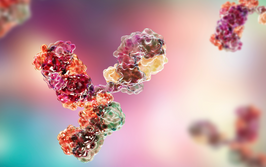Unstoppable
Sitting Down With… Sheila Mikhail, CEO and co-founder, AskBio; founder, Columbus Children’s Foundation. After featuring in The Medicine Maker Power List 2023, Mikhail shares her expertise as a lawyer, a leader, and a philanthropist.
| 5 min read | Interview

How did you come to start your own law firm?
I was practicing law in Boston when my ex husband was recruited by Duke University, so I came to North Carolina with the intention of practicing at one of the largest law firms in the southeast. I was experienced in complex transactions, mergers and acquisitions, and venture capital, but I was told that, as a woman of color, clients would not be comfortable receiving complex legal advice from me. I was asked to stay in the background and advise my peers, who would then be the interface with the client. It was disturbing.
I decided to start my own law firm, Life Sciences Law. Bayer, which was one of my clients at another law firm, transferred with me and underwrote my firm. Over time, the business became very profitable and very successful within the life sciences niche. Our clients included Gilead, Sanofi, GSK, and Bayer. One of the nicest things about starting my own law firm was the flexibility.
How did you get involved with Jude Samulski and gene therapy?
It was fate! When a course was canceled at the University of North Carolina (UNC), somebody had to step in as a guest lecturer just a few hours before it was due to begin. The lecture was to focus on spin outs and licensing from the tech transfer office. I was very knowledgeable in this area so I stepped in to give the presentation. Jude Samulski was in the audience. He approached me after the presentation; he had been trying to get a gene therapy company spun out of UNC, but was finding it difficult. He asked if I would help.
We tried to get a CEO to join the company, but gene therapy was in a kind of a nuclear winter following the death of Jesse Gelsinger. Who would want to work in a company with dismal funding prospects? But I was very interested in the company. Jude was investigating muscular dystrophy and it was obvious that these children had very poor health outcomes. There was no treatment to sustain them so I thought it was a worthwhile mission, so I became a co-founder and the CEO of AskBio.
At the time, Jude said, “I can’t pay you.” In fact, he didn't pay me for over a decade! I worked at a law firm to put money into the company and Jude took out a second mortgage on his house. Jude said, “If we are successful, we will change the world.”
Today, I think we really have changed the world. Jude’s technology is now used in Zolgensma and Luxturna.
What were the biggest motivations in the early days?
There were always other options where we could have made bigger financial returns more quickly, but this did not motivate us. Today, I always talk to my employees about working for a purpose. You spend a lot of time at work; if you aren’t behind the mission of the organization, you should find something else to do. Drug development is a very risky business, and it’s a very hard business. We didn’t get our first round of funding until 15 years after we started the company, so you really have to buy into the mission.
Along the way, we came to know a lot about the children that were treated and their parents. They were making so many sacrifices and counting on us. This reality was very motivating and made us realize that we had to keep going.
How did you manage to progress programs into the clinic without funding?
Well, it’s a lot easier to do things with money, so we built a CDMO business and added significant manufacturing capacity. I kept saying, “Well, it’s only money. If that’s the only problem, we’ll figure it out.” Most companies just stop if they don’t have the funding, but we were really insistent on our mission!
The Jesse Gelsinger death shut down the gene therapy field and left a cloud over our technology, but we were determined to push through and demonstrate that gene therapies could be safe. We came up with creative strategies, but, when you’re bootstrapping a company, it’s extremely difficult to get people engaged. We had to find people that were true believers. To this day, I am very grateful to those who stuck with us. There were many times when we almost went into bankruptcy, but we always figured out how to pull it off.
What continues to drive you?
I love the application of science when it changes people’s lives. I’m not trained as a scientist, but I read all the papers and I attend all the conferences. It’s such an exciting time for molecular medicines. First we had the gene addition augmentation approach, then it became the gene editing approach, then base editing, and now we have prime editing and cancer vaccines. Every year there seems to be a new tool that provides more precise treatment or expands the number of diseases that can be treated. Each of these different tools is right for different diseases. Hopefully, we’ll be able to shift from treating disease to preventing disease – using tools such as next generation sequencing to predict what’s going to happen as we age – or even when a child is born. It’s an incredibly exciting time.



















